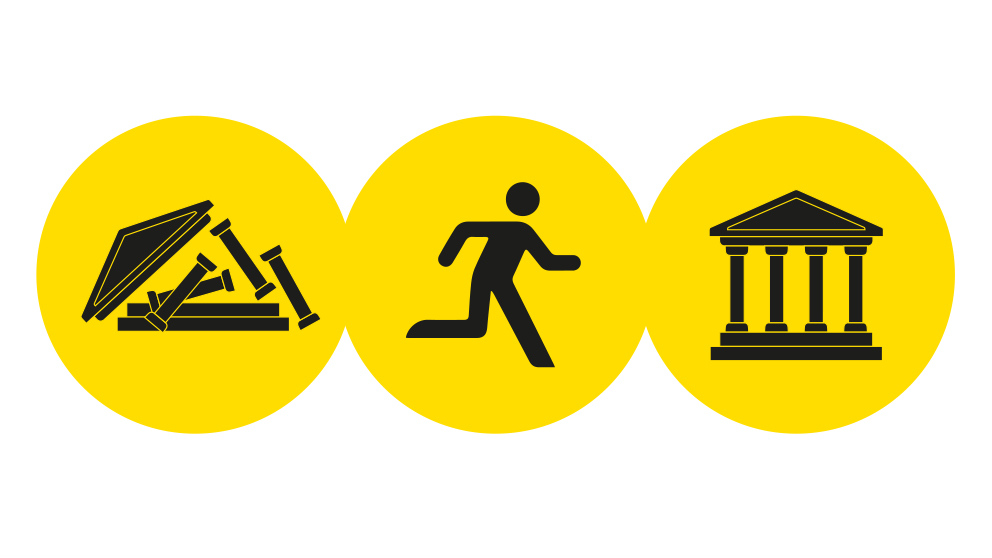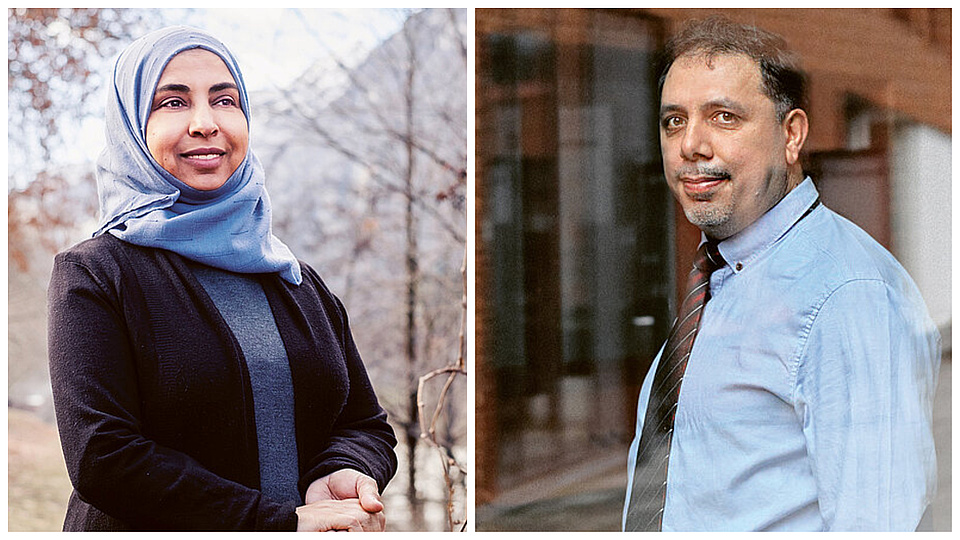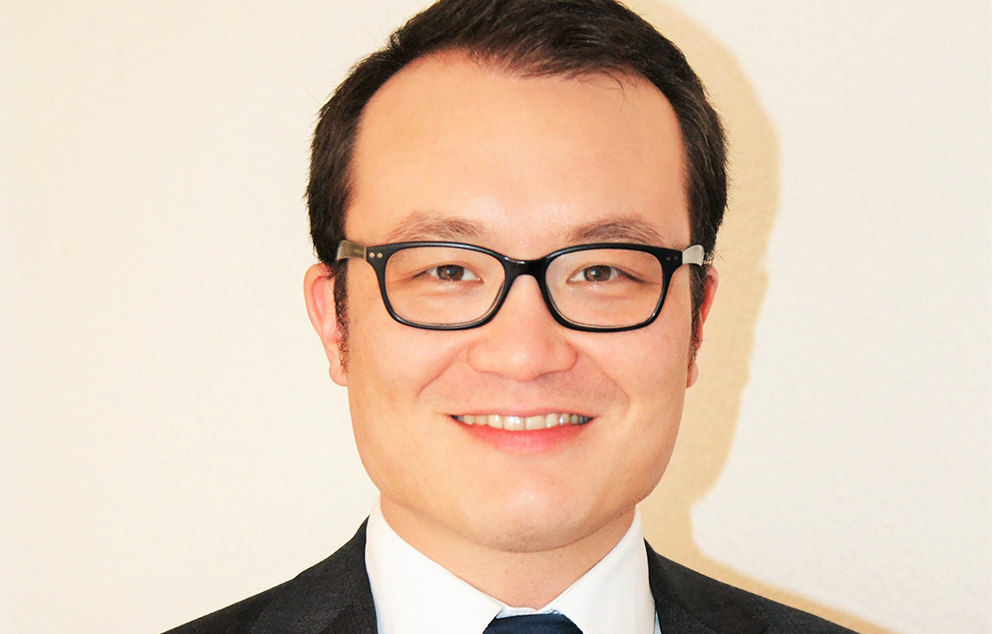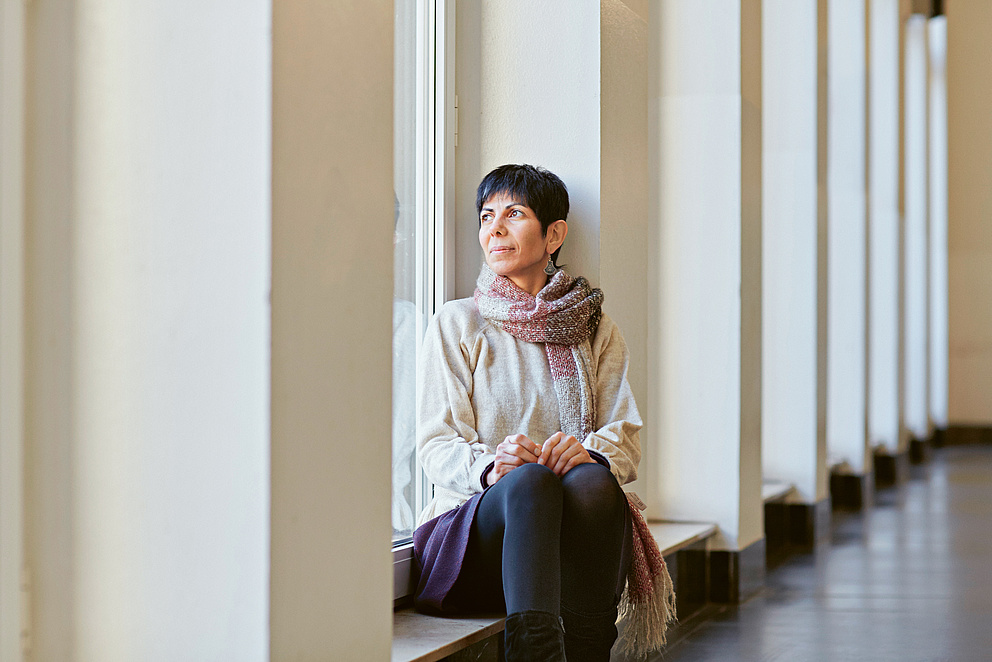
Contact
Press, Communications and Marketing
Tel.: +49 228 833-144
Fax: +49 228 833-441
presse[at]avh.de

Humboldt Foundation: Philipp Schwartz Fellows should not only find a safe haven in Germany but also be able to continue their research work. How do they get along in the German system?
Frank Albrecht: Following their safe arrival - and we’re talking here not only about their physical arrival but also their emotional arrival - one of the biggest challenges facing them is the tough competition. Some fellows don’t have a problem with this. One physicist from Turkey, for instance, did such impressive work at his German host university that he was nominated for one of our research awards. And he won it! We are really pleased about these kinds of cases. However, most Philipp Schwartz Fellows have a hard time getting themselves established.
How do researchers cope when they realise how tough the competition is here?
For most of these fellows, getting their bearings in Germany’s complex, competitive science system is a challenge. This naturally applies for all international guest researchers, but particularly so for persons who have experienced the kind of rupture in their biographies that having to flee their country brings. When someone had been a respected professor in their homeland - let’s say Syria, as an example - and now has to start over and deal with competition over scarce vacancies for permanent positions in Germany - that is a rude awakening. Some of them, after having fled their country and knowing the hardships of their families and those they left behind, feel as if yet another world is falling apart.

How do you help in such cases?
The personal support and assistance provided by the host university makes a big difference here. How well does the mentor look after the fellow on a professional and on a personal level? Is professional psychological support available, for example, to treat psychological trauma? Is there assistance with finding a flat or dealing with bureaucracy, securing language courses and the like? An incredible amount has been achieved at structural level thanks to the enormous commitment on the part of the research mentors and host institutions and, last but not least, through our initiative. Here at the Foundation, we also have an eye on this as well when selecting host institutions. We want to know: How dedicated are the hosts? How convincing are their considerations and plans for ensuring longer-term prospects for the respective individuals - in the system or outside of it, in Germany or elsewhere? What kinds of professional structures is the university developing in order to help at-risk researchers?
How can professional integration succeed when there are no suitable job vacancies?
Well, the job doesn’t necessarily have to be at a university. We strongly support having fellows and their mentors also look for positions in industry. As specialists, many of our fellows could be of interest for this job market. Which is why we are establishing more relations with private employers and associations.

When the Philipp Schwartz Initiative was launched five years ago, it was hoped that at least some of the individuals would one day be able to return to their native countries where they will be urgently needed. However, the crises just continue - in Syria, Yemen, Turkey and elsewhere. Today, most of your Philipp Schwartz Fellows are still in Germany. Does a person who after years has become established in Germany ever want to return home?
Yes, we know from discussions that most of these individuals would prefer to return home and help rebuild their countries. This desire does not disappear after a few years. On the other hand, what often disappears is the hope that conditions will change enough to enable their safe return.
Scientific and academic freedom is in danger in many countries, a situation that is reflected in the rising number of applications...
Yes, this is unfortunately true. We are currently able to sponsor less than one-third of the proposed researchers. We need more offerings like ours in other European countries as well. And we are working towards this at European level with our partners in the InSPIREurope project. That could also help reduce path dependencies.
Could you explain this?
Based on our experience, existing networks play a big role. For example, a lot of researchers from Turkey and Syria come to us in Germany. Presumably, a lot of people from francophone countries or from countries that are closely connected with France go to France. Existing or developing networks in the respective country can help the individual’s integration. Our primary objective however is to establish greater diversity in terms of the native countries of the Philipp Schwartz Fellows and to offer more protection on a pan-European basis by having more countries in Europe become safe havens for at-risk researchers. The Philipp Schwartz Initiative has already become a model in Germany and a number of other countries. We hope that this continues.

updated on 7 July 2021
